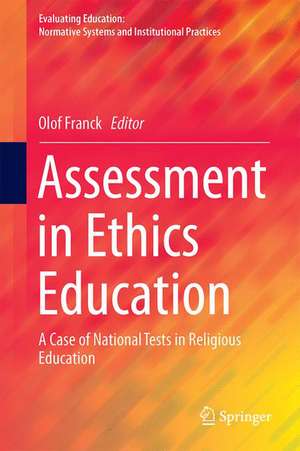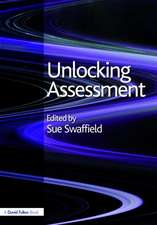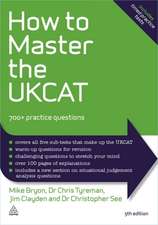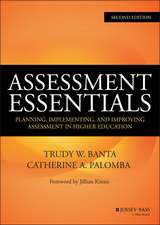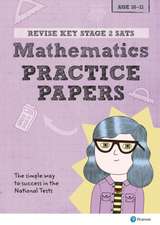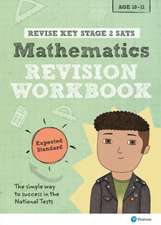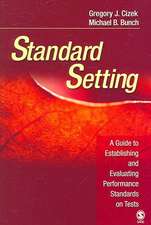Assessment in Ethics Education: A Case of National Tests in Religious Education: Evaluating Education: Normative Systems and Institutional Practices
Editat de Olof Francken Limba Engleză Hardback – 31 mar 2017
The first chapters highlight the concepts of ethical competence and critical thinking. In the following chapters the concept of ethical competence is analyzed with regard to teachers’ objectives and to students’ texts, respectively. These chapters pursue a more practice-related approach and highlight specific challenges identified from both teacher and student perspectives. Next, the book raises the issue of global responsibility. What kind of critical issues arise when handling such matters at school? Further, can contemporary moral philosophers contribute to such a discussion? In turn, the book discusses the role of statistical analyses with regard to national tests, while the closing chapters present international perspectives on the book’s main themes and concluding remarks.
The book’s critical yet constructive approach to issues regarding assessment in ethics education makes a valuable contribution to an ongoing debate among researchers as well as to the everyday communication on testing in schools and classrooms. As such, it will appeal to scholars in ethics education and researchers in the field of assessment, as well as educators and teachers interested and engaged in the task of testing ethics in school contexts where curricular demands for valid and authoritative evaluation may provide important guidelines, but may also pose challenges of their own.
| Toate formatele și edițiile | Preț | Express |
|---|---|---|
| Paperback (1) | 383.33 lei 6-8 săpt. | |
| Springer International Publishing – 21 iul 2018 | 383.33 lei 6-8 săpt. | |
| Hardback (1) | 390.63 lei 6-8 săpt. | |
| Springer International Publishing – 31 mar 2017 | 390.63 lei 6-8 săpt. |
Preț: 390.63 lei
Nou
Puncte Express: 586
Preț estimativ în valută:
74.75€ • 79.93$ • 62.32£
74.75€ • 79.93$ • 62.32£
Carte tipărită la comandă
Livrare economică 17 aprilie-01 mai
Preluare comenzi: 021 569.72.76
Specificații
ISBN-13: 9783319507682
ISBN-10: 3319507680
Pagini: 197
Ilustrații: XIII, 197 p.
Dimensiuni: 155 x 235 x 13 mm
Greutate: 0.48 kg
Ediția:1st ed. 2017
Editura: Springer International Publishing
Colecția Springer
Seria Evaluating Education: Normative Systems and Institutional Practices
Locul publicării:Cham, Switzerland
ISBN-10: 3319507680
Pagini: 197
Ilustrații: XIII, 197 p.
Dimensiuni: 155 x 235 x 13 mm
Greutate: 0.48 kg
Ediția:1st ed. 2017
Editura: Springer International Publishing
Colecția Springer
Seria Evaluating Education: Normative Systems and Institutional Practices
Locul publicării:Cham, Switzerland
Cuprins
1. Introduction; Olof Franck.- 2. Varieties of Conceptions of Ethical Competence and the Search for Strategies for Assessment in Ethics Education: A Critical Analysis; Olof Franck.- 3. Critical Thinking in Students’ Ethical Reasoning: A Reflection on Some Examples from the Swedish National Tests in Religious Education; Kristoffer Larsson.- 4. Teachers’ Experiences of Ethics in Religious Education; Annika Lilja.- 5. Ethical Competences in Pupils’ Texts – Existential Understandings and Ethical Insights as Central but Tacit in the Curriculum; Christina Osbeck.- 6. Global Responsibilities and Ethics Education: To Be Assessed and If So How? Karin Sporre.- 7. Differential Item Functioning in the National Tests in Religious Education in Sweden; Johan Tykesson.- 8. Assessment in Ethics Education: Neoliberalism, Values and Alignment; Nigel Fancourt.- 9. The Assessment of Ethics and the Ethics of Assessment; Julian Stern.- 10. Concluding Remarks and Future Directions; Olof Franck.
Textul de pe ultima copertă
This book presents a number of fundamentally challenging perspectives that have been brought to the fore by the national tests on religious education (RE) in Sweden. It particularly focuses on the content under the heading Ethics. It is common knowledge that many teachers find these parts difficult to handle within RE. Further, ethics is a field that addresses a range of moral and existential issues that are not easily treated. Many of these issues may be said to belong to the philosophical context, in which “eternal questions” are gathered and reflected upon.
The first chapters highlight the concepts of ethical competence and critical thinking. In the following chapters the concept of ethical competence is analyzed with regard to teachers’ objectives and to students’ texts, respectively. These chapters pursue a more practice-related approach and highlight specific challenges identified from both teacher and student perspectives. Next, the book raises the issue of global responsibility. What kind of critical issues arise when handling such matters at school? Further, can contemporary moral philosophers contribute to such a discussion? In turn, the book discusses the role of statistical analyses with regard to national tests, while the closing chapters present international perspectives on the book’s main themes and concluding remarks.
The book’s critical yet constructive approach to issues regarding assessment in ethics education makes a valuable contribution to an ongoing debate among researchers as well as to the everyday communication on testing in schools and classrooms. As such, it will appeal to scholars in ethics education and researchers in the field of assessment, as well as educators and teachers interested and engaged in the task of testing ethics in school contexts where curricular demands for valid and authoritative evaluation may provide important guidelines, but may also pose challenges of their own.
The first chapters highlight the concepts of ethical competence and critical thinking. In the following chapters the concept of ethical competence is analyzed with regard to teachers’ objectives and to students’ texts, respectively. These chapters pursue a more practice-related approach and highlight specific challenges identified from both teacher and student perspectives. Next, the book raises the issue of global responsibility. What kind of critical issues arise when handling such matters at school? Further, can contemporary moral philosophers contribute to such a discussion? In turn, the book discusses the role of statistical analyses with regard to national tests, while the closing chapters present international perspectives on the book’s main themes and concluding remarks.
The book’s critical yet constructive approach to issues regarding assessment in ethics education makes a valuable contribution to an ongoing debate among researchers as well as to the everyday communication on testing in schools and classrooms. As such, it will appeal to scholars in ethics education and researchers in the field of assessment, as well as educators and teachers interested and engaged in the task of testing ethics in school contexts where curricular demands for valid and authoritative evaluation may provide important guidelines, but may also pose challenges of their own.
Caracteristici
Identifies a number of specific challenges in relation to ethical issues involved in national tests on religious education Discusses how valid and reliable tests can be developed in a subject that touches on profound existential questions Combines contemporary discussions of the theory of ethics with educational practices in Swedish schools as well as from an international perspective
